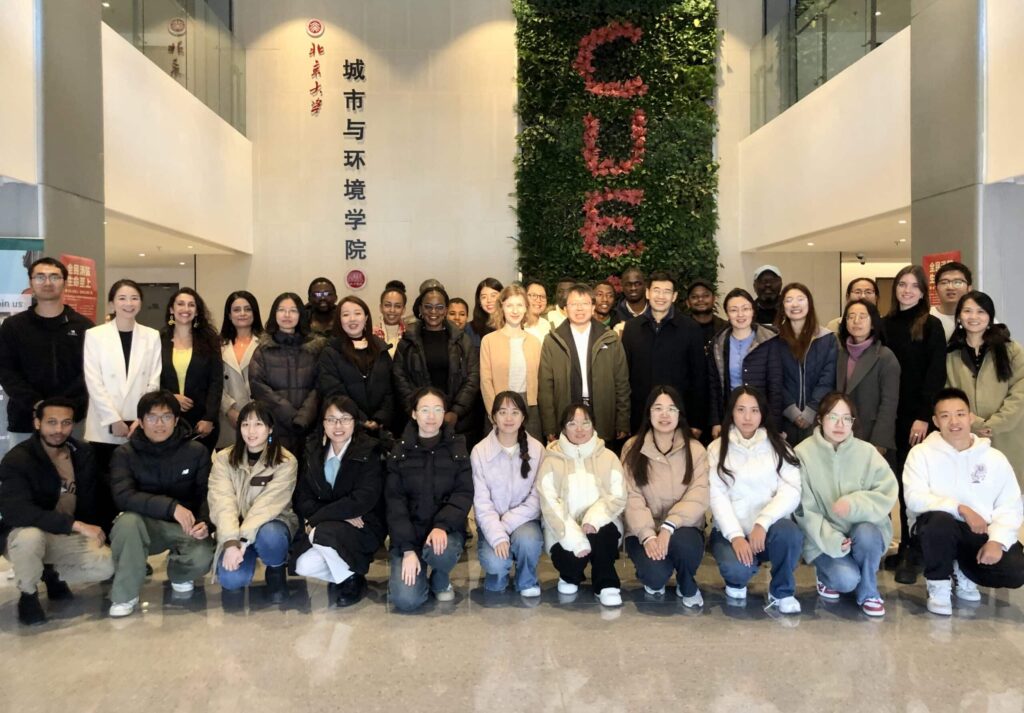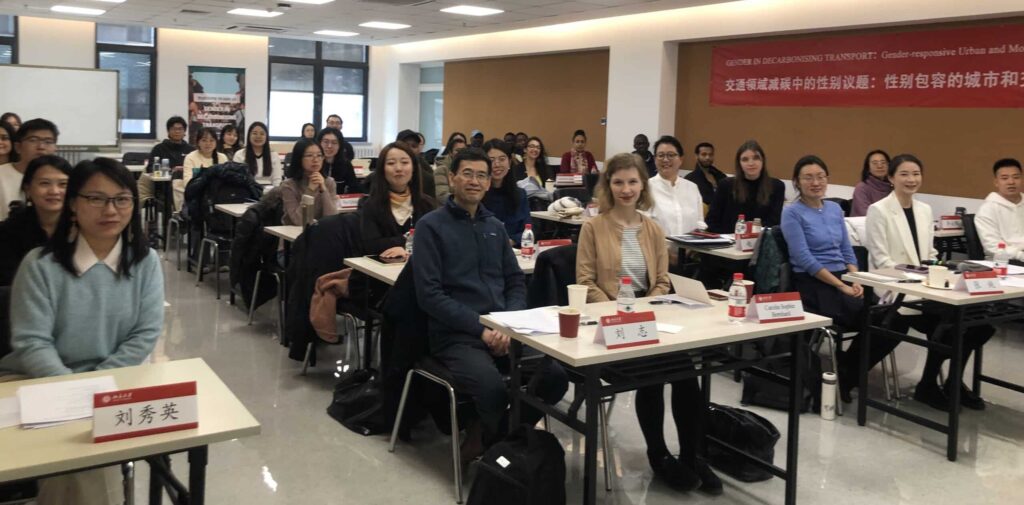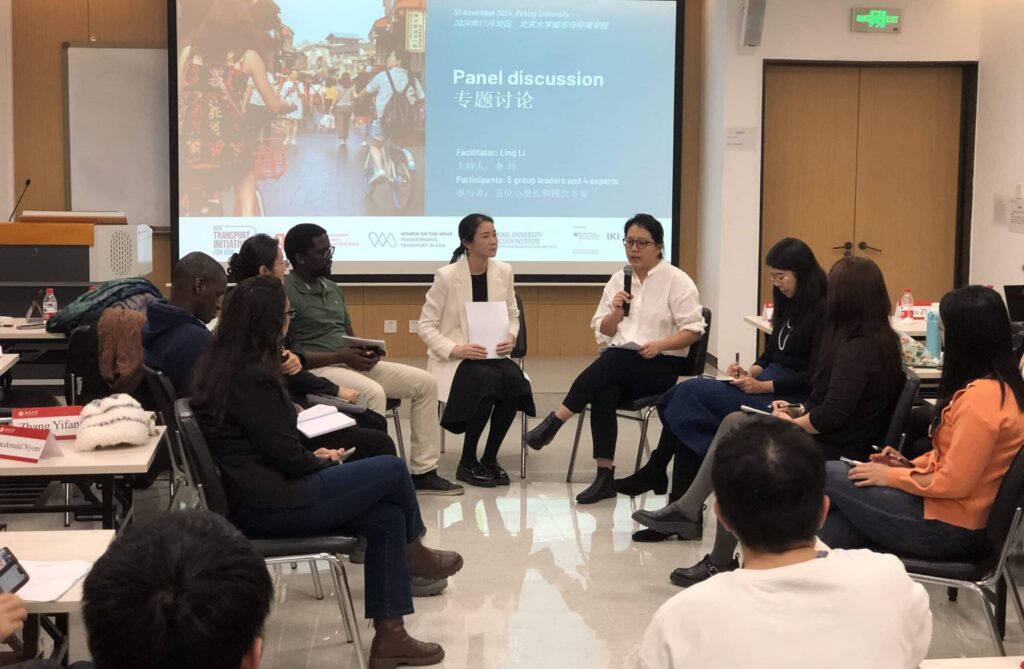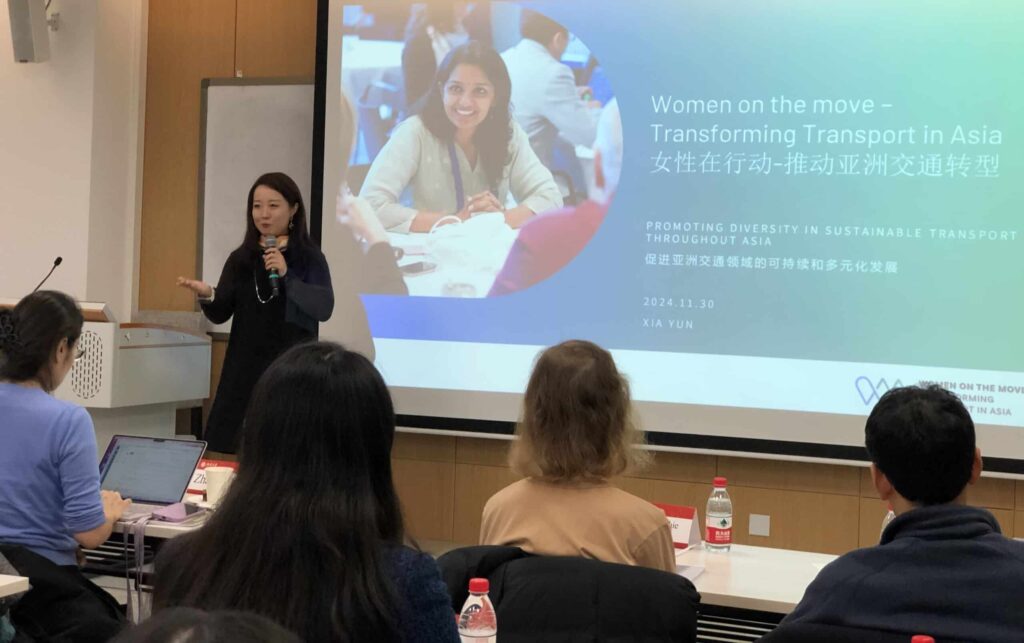
Enhancing the inclusion of all population groups in urban and mobility planning contributes to the sustainability of transport systems and overall quality of life and socio-economic wellbeing. How to connect the dots between the factors “gender”, “transport” and “decarbonisation” – this was the theme of a workshop held by GIZ in co-organisation with Peking University, Lincoln Institute Center for Urban Development and Land Policy on 30 November 2024 in Peking. The event provided a platform of exchange for transport experts and master’s and PhD students as the next generation of urban and mobility planners, to broaden their perspectives on gender-responsive urban and mobility planning and discuss the complex interdependencies that shape transport systems.

Offering both theoretical perspectives and practical implementation experiences, experts from Beijing Jiaotong University, the World Bank, the Institute for Transport and Development (ITDP) and GIZ shared their insights on gender-responsive project work. Students learned about gender-specific mobility patterns and the “gender mobility gap” as regards women´s transportation cost constraints, insufficient public transport coverage and specific safety concerns. The inputs highlighted both the importance of context-specific interventions and the relevance of institutionalising gender equality along all work streams, covering both strategic decision-making and daily operations. The students then worked in groups on specific topics and shared about their previous urban transport experiences, ranging from diverse cultural and country backgrounds.

By fostering awareness and action on gender issues, the workshop empowered students to approach urban and mobility planning with a gender-inclusive perspective, setting the stage for a more equitable future in transport planning. All participants emphasised the new knowledge and tools gained from the day of experience and expert exchange, and hoped to continue the discussion in the context of future events.

1. Enhanced data collection, research and gender-disaggregated data analysis
Whilst data points on gender are already collected in some instances in China, the experts shared that in contrast to factors as age or income, up to this date, gender-disaggregated data is oftentimes not fully explored. There are still major gender data gaps, especially when it comes to individual travel choice calculations, which inhibit evidence-based and gender-responsive policymaking. More research and the inclusion of gender and diversity aspects in university curricula are necessary to equip aspiring practitioners with the tools and evidence to factor in gender in policymaking.
2. Institutionalisation and budgeting of gender equality
Gender equality has to be considered at strategic levels, influencing not only project operations at grassroots level, but equally guiding strategic decisions and being “owned” and informed by coordination between various authorities. Focusing on cost-effective interventions and budgeting gender activities in the early start of project conceptualisation can provide a solid ground for related activities. Meanwhile, more future-oriented planning, e.g. considering aging demographics and barrier-free infrastructures, may prevent costly retrofits.
3. Peer learning and inclusion of all
Going beyond purely “women’s issues”, gender-inclusive planning should consider the benefits of all, being particularly mindful of local contexts and needs, cultural traditions and social norms. A narrative of “human cities” may include all stakeholders and envision truly inclusive development. More experience sharing, case study comparison and peer learning can support joint efforts towards more inclusive policymaking across the world.
NDC Transport Initiative for Asia (NDC-TIA) is part of the International Climate Initiative (IKI). The German Federal Ministry for Economic Affairs and Climate Action (BMWK) supports this initiative on the basis of a decision adopted by the German Bundestag. It supports China, India, and Viet Nam as well as regional and global decarbonisation strategies to increase the ambition around low-carbon transport.